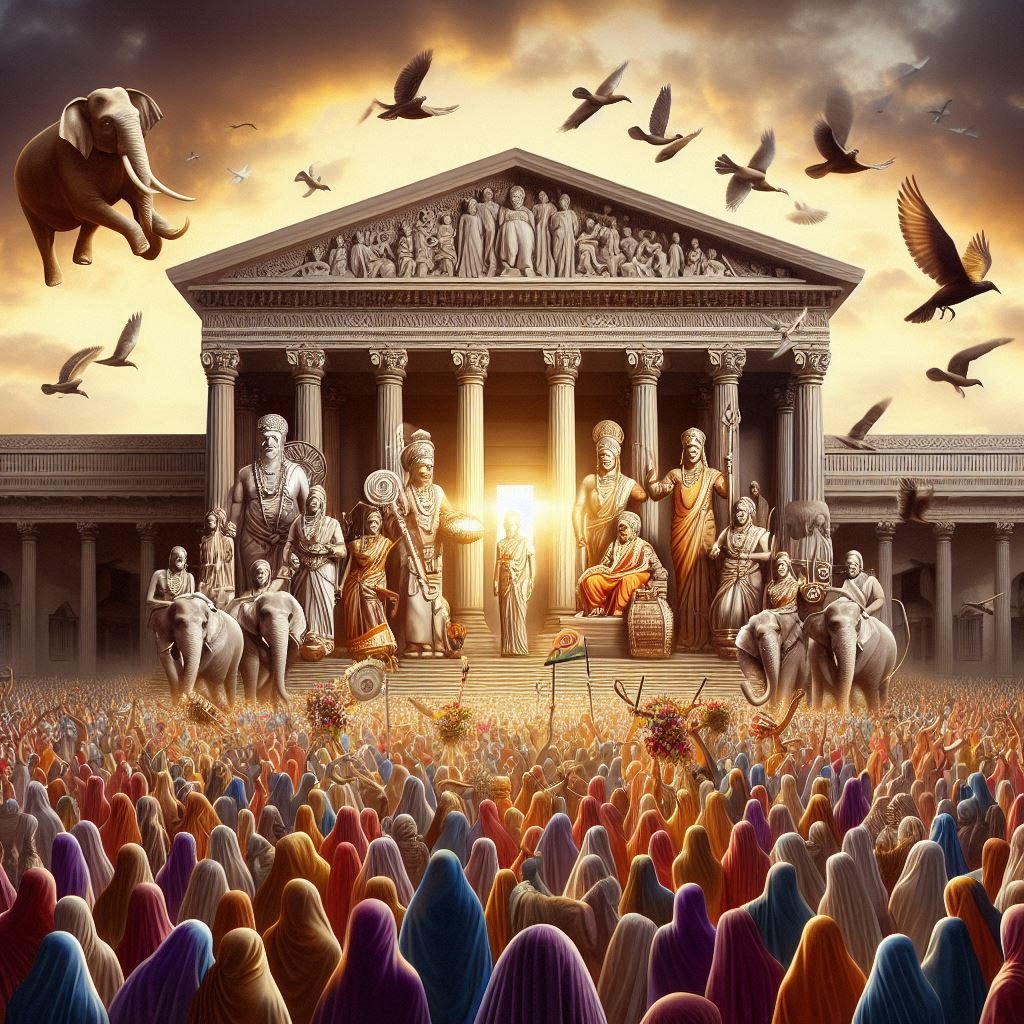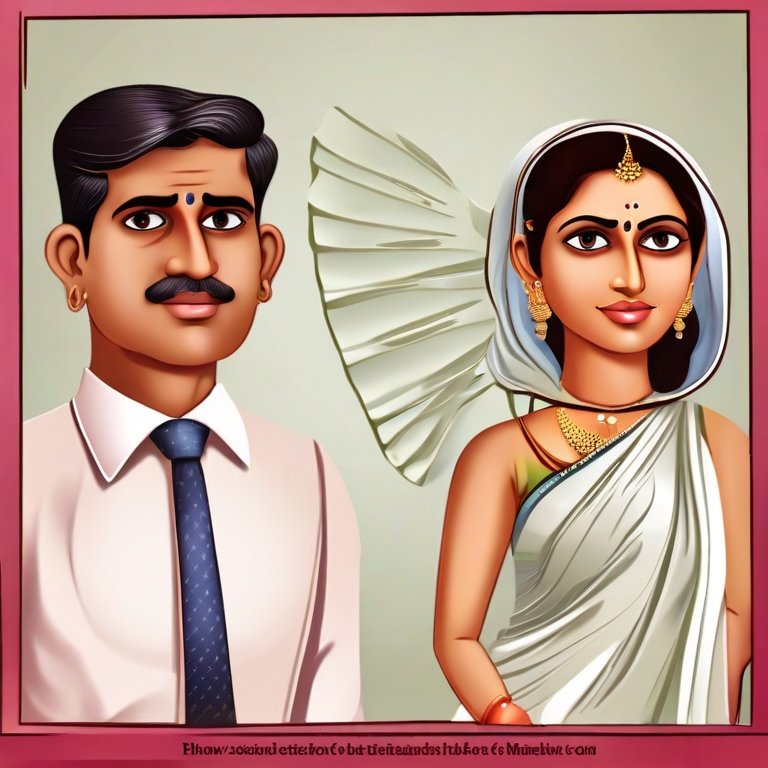The Truth About Hindu vs. Muslim: Debunking Biased Conclusions in Indian History
History is often romanticized and glamorized, painting a picture of heroism and bravery with little regard for accuracy.
In the context of India, this unfortunate trend has led to a distorted view of events, particularly those surrounding the relationship between Hindus and Muslims.
In a recent podcast episode on The Ranveer Show, Sandeep Balakrishna, a writer and author specializing in Indian history and culture, joined Ranveer Allahbadia to delve into these controversial topics.
Their fiery debate shed light on the truth about the dynamics between Hindus and Muslims in Indian history, debunking biased conclusions and exposing the flaws in our education system.
The Education System’s Flawed Narrative
One major issue that Balakrishna points out is the lack of accurate representation of Indian history in our education system. He believes that the textbooks used in schools are not unbiased sources of information.
The Truth About Hindu vs. Muslim: Debunking Biased Conclusions in Indian History

Instead, they are tools that perpetuate a specific narrative, painting Hindus as victims and Muslims as invaders.
Balakrishna argues that this portrayal is far from accurate. He states that there were many rulers from both religions who treated their citizens with respect and upheld a sense of harmony within their kingdoms.
However, these stories are often overshadowed by those that highlight conflict and violence.The Truth About Hindu vs. Muslim: Debunking Biased Conclusions in Indian History
The New Education Policy: A Step Towards Change
In response to such issues, the Indian government introduced the New Education Policy (NEP) in 2020, aiming to revamp the country’s education system.
The NEP aims to promote a more holistic and multidisciplinary approach to learning while also focusing on critical thinking and analytical skills.
While Balakrishna acknowledges that this is a step in the right direction, he emphasizes the need for a complete overhaul of textbooks.
He believes that only when we have accurate representations of history can we truly understand and learn from it.The Truth About Hindu vs. Muslim: Debunking Biased Conclusions in Indian History
The Impact of Islamic Invasions on Hindu-Muslim Relations
One of the most contentious topics discussed in the podcast was the impact of Islamic invasions on the relationship between Hindus and Muslims.
Balakrishna argues that while these invasions did result in violence and destruction, it did not lead to a permanent divide between Hindus and Muslims.
He points out that there have been several instances of Hindu and Muslim leaders collaborating and supporting each other in times of need.
The Truth About Hindu vs. Muslim: Debunking Biased Conclusions in Indian History
He also highlights the contributions of Muslim rulers like Akbar and Tipu Sultan, who ruled with a sense of inclusivity and secularism.
The Responsibility of Hindus
Balakrishna believes that both Hindus and Muslims hold equal responsibility for maintaining communal harmony in India.
He acknowledges that some Hindus may have negative views towards Muslims, but this is not representative of the entire community.
Similarly, Muslims shouldn’t be judged based on the actions of a few extremist individuals.
He emphasizes the importance of unity and collective responsibility in building a better future for India. He suggests looking towards ancient Hindu texts, which promote a sense of inclusivity and brotherhood, as a foundation for this unity.
The Role of Books in Faith
The conversation also touched upon how books play a crucial role in shaping our faith and belief systems. The Truth About Hindu vs. Muslim: Debunking Biased Conclusions in Indian History
Balakrishna argues that it is essential to critically analyze the information we consume instead of blindly accepting it.

The Truth About Hindu vs. Muslim: Debunking Biased Conclusions in Indian History
He believes that this approach is particularly crucial for those who look towards religion for guidance.
It is essential to understand that books, while providing valuable insights, can also be sources of bias and misinformation.
A Generalized View
One particular point that Ranveer brought up was that modern Indian Muslims should not be held accountable for the actions of their ancestors during the Islamic invasions.
He argued that attaching these events to present-day Muslims would be equivalent to blaming all white Americans for slavery.
While Balakrishna acknowledged this point, he also highlighted the importance of acknowledging and learning from India’s history.
He stresses that acknowledging past mistakes is essential in avoiding future ones.
The Importance of Unity
Balakrishna concludes the podcast by emphasizing the need to revive a sense of “Aryavarta consciousness” amongst Hindus.
He believes that the lack of unity amongst Hindus is what has ultimately led to the misrepresentation of Indian history.
He suggests looking towards the United States, where acknowledging past atrocities has helped in promoting unity and harmony amongst people from different backgrounds.
In conclusion, the debate between Sandeep Balakrishna and Ranveer Allahbadia sheds light on critical issues surrounding Indian history and religion.
It emphasizes the importance of critically analyzing information and being open to different perspectives. Only with a more nuanced understanding of history can we hope for a more unified future.







